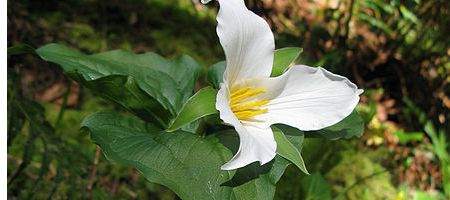A hundred and fifty years after his death, Henry Thoreau has helped demostrate the effects of global warming on plant life in the US.

Using records from both Thoreau and Aldo Leopold, scientists have shown that native plants in the eastern US are flowering as much as a month earlier than they used to.
Native plants such as serviceberry and nodding trillium are blooming 11 days earlier, on average, in the area around Concord, Massachussetts, where Thoreau famously lived and worked.
Nearly a thousand miles away in Wisconsin, where Leopold gathered his records of blooming plants, the change is even more striking. In 2012, the warmest spring on record for Wisconsin, plants bloomed on average nearly a month earlier than they did just 67 years ago when Leopold made his last entry.
“These historical records provide a snapshot in time and a baseline of sorts against which we can compare more recent records from the period in which climate change has accelerated,” says Stan Temple, an emeritus UW-Madison professor of wildlife ecology.
The study examined the detailed phenological records of 32 native plant species in Concord, Massachussetts, kept between 1852 and 1858 by Thoreau – a pioneering naturalist best known as the author of Walden.
A second data set of flowering times for 23 species in southern Wisconsin was compiled by Leopold, a renowned wildlife ecologist at the University of Wisconsin, between 1935 and 1945.
The study suggests that the trend in flowering plants may go further than the changes observed in controlled studies. Changes in the timing of flowering have broad implications for the animals and insects that depend on the plants.
“Leopold and Thoreau had no idea their observations would help us understand responses to human-caused climate change.” says Temple. “But Leopold knew his records might be useful in retrospect when he wrote: ‘Keeping records enhances the pleasure of the search, and the chance of finding order and meaning in these events’.”






